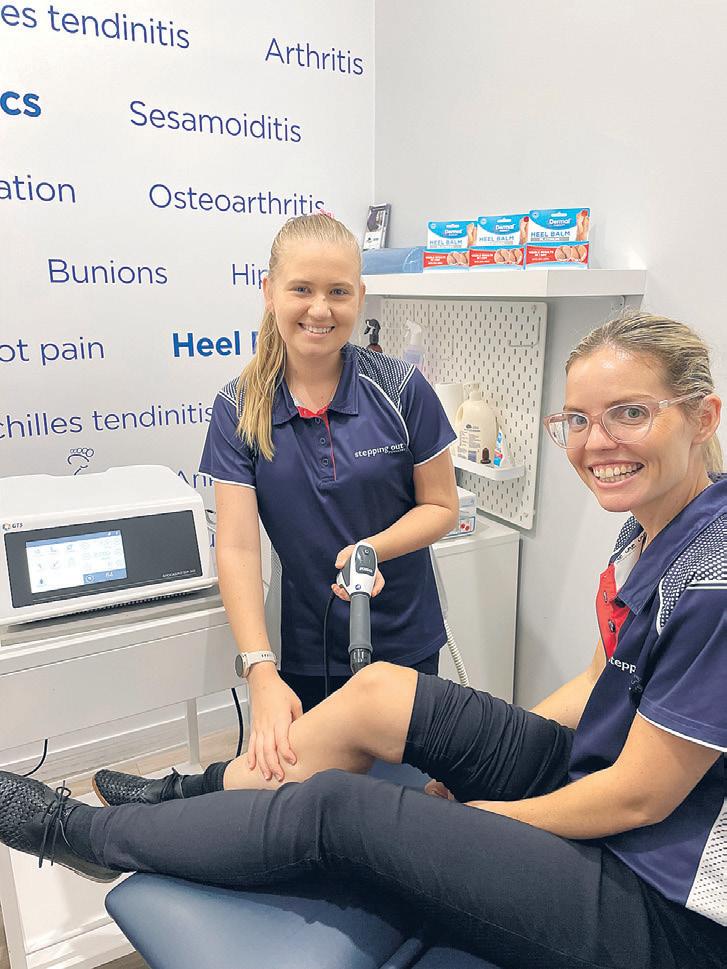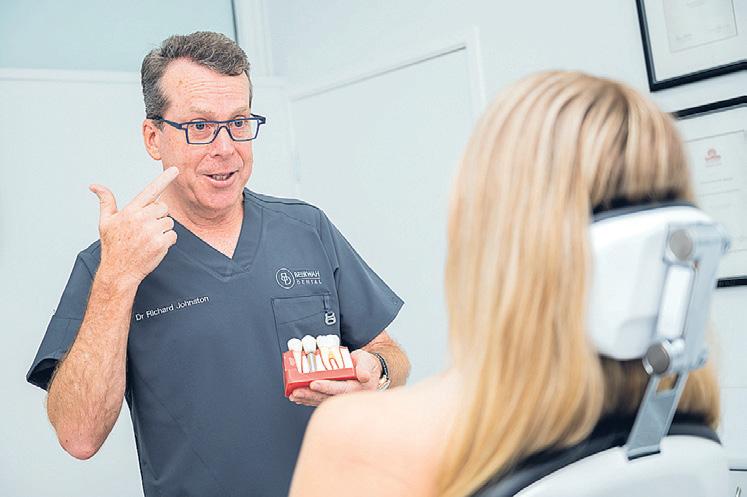
4 minute read
Study identifies new ways to overcome rheumatoid arthritis
A RECENT study conducted by the University of South Australia has found that women with rheumatoid arthritis who take oral contraceptives or hormone replacement therapy (HRT) have a higher chance of achieving remission.
The study, which evaluated data from 4474 female rheumatoid arthritis patients treated with anti-inflammatory drug Tocilizumab and other immunosuppressive medications, has made a link between remission, reproductive status, and sex hormone use.
The research revealed that premenopausal women, who still experience a regular menstrual cycle, have fewer symptoms of rheumatoid arthritis compared to peri-menopausal or postmenopausal women. Furthermore, women who used HRT or oral contraceptives in combination with drugs prescribed for rheumatoid arthritis were found to have a much greater chance of achieving remission.
Lead researcher Associate Professor pain in their knees, whether it is yourself or a friend. More than likely, this has been going on for a long time and affecting your everyday life. Basic movements such as standing up from a chair, or walking up and down stairs can become obstacles when you have knee pain.
Michael Wiese explains that it is too early to say that HRT and oral contraceptives have a protective effect against rheumatoid arthritis, but the study has revealed a potential connection.
Assoc Prof Wiese suggests that each woman’s decision to use HRT should be based on an in-depth discussion with a general practitioner, as it could modify the risk of some cancers and cardiovascular disease.
Rheumatoid arthritis is more prevalent in women aged under 50 years than men in the same age group and is twice as common in women over 60 years.
Women with rheumatoid arthritis experience a decline in inflammatory activity when they fall pregnant, while early menopause increases the risk of developing the condition.

The study, which highlights the potential role of female sex hormones in improving outcomes for women with rheumatoid arthritis, has been published in the latest issue of Rheumatology.
We can help!
The podiatrists at Stepping Out Podiatry are highly skilled in the diagnosis and treatment of many different knee pathologies. The clinic houses many stateof-the-art treatment therapies which will help not only your knee pain, but also help your daily function.
“It is comforting for people to know that with the right treatment, you don’t have to endure knee pain in your everyday activities” Podiatrist Kellie states. Combination of treatments
Podiatrist Mia, who has a special interest in knees and hips states, “Each consultation is completely tailored to your pathology, activity levels and biomechanics. Often you will see the best results with combination of treatments”.
“We focus on 3 main treatment modalities that aim at reducing the pain, inflammation and stress going through the knee joint, we will normally see great results in just 2 weeks.”
1. Shockwave Therapy – This is fantastic at reducing pain levels within the knee joint. “We usually find that patients with chronic knee pain note a significant improvement where they are almost back to normal function in just 3 sessions” says Mia.

2. Strengthening – We will give you 2-3 easy exercises that will improve the strength of your knee joint. Kellie states that “we design a custom program which can even be sent directly to your phone –with easy interactive video demonstrations to improve technique and compliance at home.”
3. Custom foot orthotics – An orthotic is a customised insole placed in your shoes that are proven to re-distribute soft tissue pressures from the ground all the way up the body. Mia explains “This means, that if we reduce the forces going through the lower limbs, we can reduce the impingement and pain at the knee that may be stemming from pathologies such as medial knee osteoarthritis, patellofemoral pain syndrome, ITB pathologies and bursitis”.
Feel good again www.steppingoutpodiatry.com.au
Your knee pain can be reduced – come in and see us and start taking control of your mobility.
In this month’s edition of ‘The Bleeding Obvious’ I am going to look at the relationship between poor oral health and Diabetes.
A recent study from Korea has established a correlation between complete tooth loss and diabetes. Additionally, severe periodontal disease has been linked to diabetes, with diabetic individuals having a higher likelihood of developing periodontal disease due to increased susceptibility to infections throughout the body.
Periodontal disease is now commonly referred to as the “sixth complication” of diabetes. Poorly managed diabetes further exacerbates the risk of developing periodontal disease. Recent evidence suggests that periodontal disease can also predict the development of end-stage kidney disease in diabetic patients. Further research has indicated that the relationship between periodontal disease and diabetes is bidirectional. The presence of periodontal disease can make it more challenging for diabetic individuals to control their blood sugar levels, as severe periodontal disease can increase blood sugar levels. Additionally, diabetes can cause blood vessels to thicken and narrow, which can reduce blood flow to the gums, making it harder for them to heal after an infection.
Furthermore, people with periodontal disease may need higher doses of insulin to maintain blood sugar control, as the infection can make the body more resistant to insulin. This can make it more difficult to manage diabetes and increase the risk of complications.
The link between diabetes and periodontal disease is particularly concerning given the high prevalence of both conditions. In the United States, it is estimated that over 30 million people have diabetes, while approximately half of all adults have some form of periodontal disease. This means that a significant portion of the population is at risk of developing both conditions, which can have serious implications for their overall health.
Fortunately, there are steps that people with diabetes can take to reduce their risk of developing periodontal disease. These include maintaining good oral hygiene by brushing and flossing regularly, visiting the dentist regularly for check-ups and cleanings, and quitting smoking, as smoking is a major risk factor for gum disease.

In conclusion, periodontal disease and diabetes are closely linked, with each condition increasing the risk of developing the other. This highlights the importance of good oral hygiene and regular dental visits for people with diabetes, as well as the need for close collaboration between dental and medical professionals to manage both conditions effectively.
To book an appointment with Dr Johnston simply call Beerwah Dental 07 5494 0766 or visit www.beerwahdental.com.au to book online










